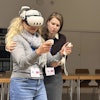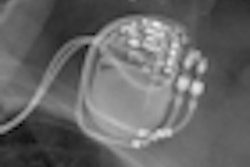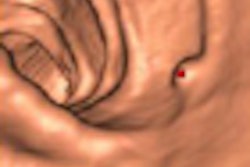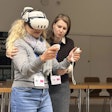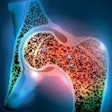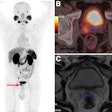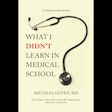
LONDON (Reuters), Jun 25 - Radiofrequency identification chips (RFID) used to track and trace products could cause critical care medical devices such as pacemakers and ventilators to fail, Dutch researchers said on Tuesday.
Electromagnetic interference from the chips caused 22 problems that could endanger patients, ranging from completely stopping syringe pumps to switching off ventilators, said Erik Jan van Lieshout, a critical care physician at the Academic Medical Centre at the University of Amsterdam.
"We wanted to investigate the safety of RFID in healthcare because it hasn't been tested," Van Lieshout, who co-led the study, told Reuters. "This is the first study ever done on RFID interference within the hospital."
Retailers have embraced RFID and the technology is now moving into healthcare; the researchers estimate spending in the U.S. will grow to $2 billion annually in the next ten years from a current $90 million.
Potential applications include marking drug blister packs to prevent counterfeiting, monitoring blood products with temperature-sensitive blood products, and tracking and tracing important medical equipment and devices, Van Lieshout said.
The potential for harmful electromagnetic interference from electronic anti-theft surveillance systems on some pacemakers and defibrillators is also known but the effect on other critical care devices is not certain, the researchers said.
"Implementation of RFID in the intensive care unit and other similar healthcare environments should require onsite electromagnetic interference tests in addition to updated international standards," Van Lieshout and colleagues wrote in the Journal of the American Medical Association.
The Dutch team tested electromagnetic interference of the two most common RFID systems in a one-bed patient room in an intensive care unit with no patients.
Their tests on 41 devices identified 22 hazardous incidents, two they classified as significant and another 10 as light. Most of the hazardous incidents occurred at about 9.8 inches from the equipment, though they recorded problems up to six meters away.
A hazardous incident was a problem that could directly endanger a patient while a significant incident was one requiring a nurse's attention but not something that put a person at immediate risk.
The findings should not dissuade hospitals from using a technology but they underscore the need to make sure wireless signals are safe for patients, Van Lieshout added.
"We don't want to induce a ban on RFID in healthcare because it has real potential," he said. "But like other wireless signals it could endanger your equipment, and thus your patient."
By Michael Kahn
Last Updated: 2008-06-24 16:01:18 -0400 (Reuters Health)
Copyright © 2008 Reuters Limited. All rights reserved. Republication or redistribution of Reuters content, including by framing or similar means, is expressly prohibited without the prior written consent of Reuters. Reuters shall not be liable for any errors or delays in the content, or for any actions taken in reliance thereon. Reuters and the Reuters sphere logo are registered trademarks and trademarks of the Reuters group of companies around the world.



